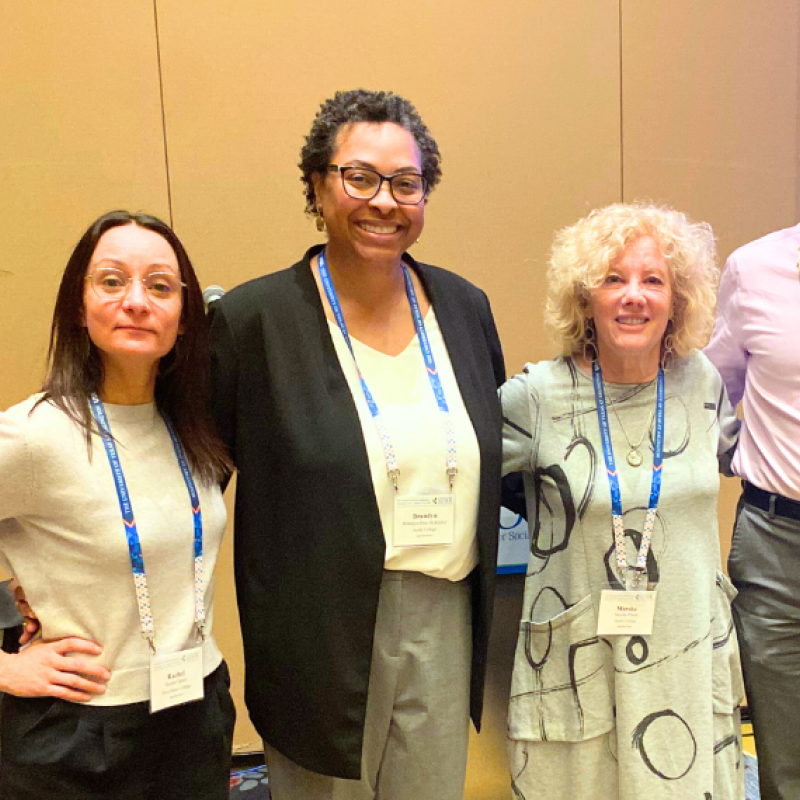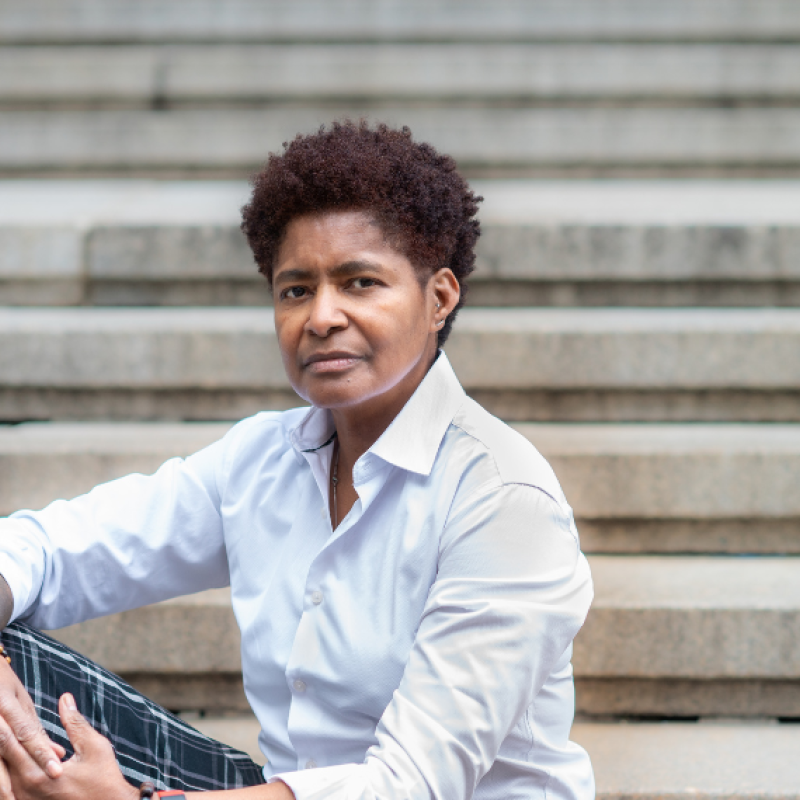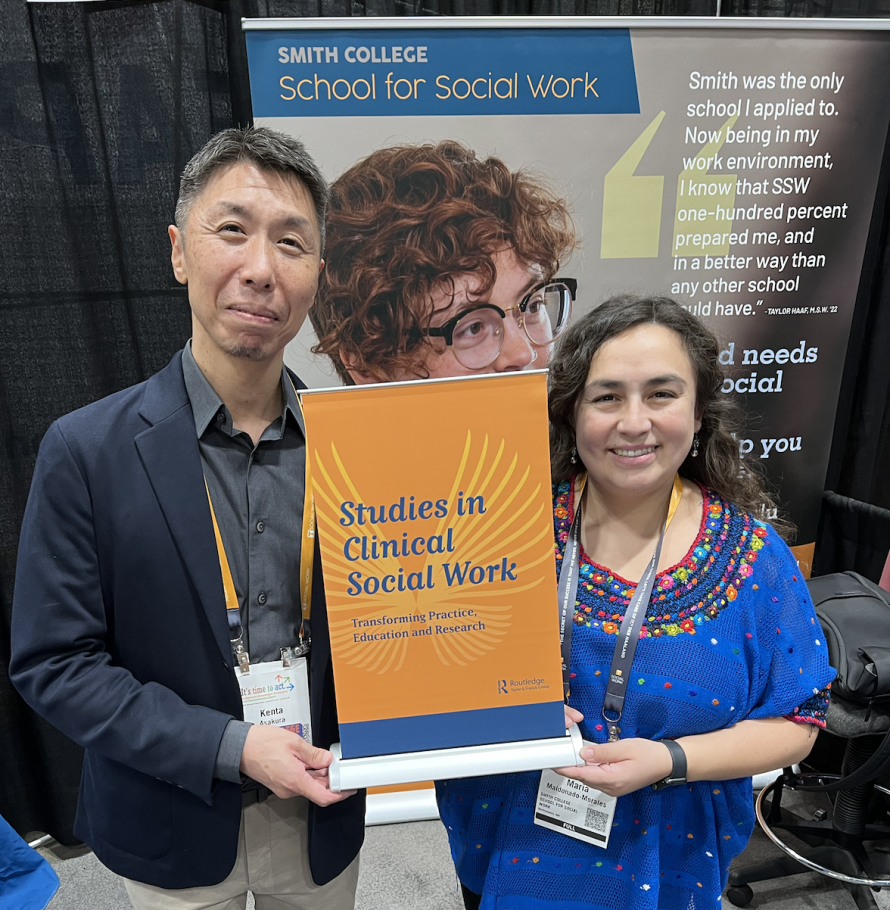
This fall, faculty and doctoral students traveled to Kansas City, MO for the Council on Social Work Education’s 2024 Annual Program Meeting (APM) to share their research. The conference brings together leading social work educators and researchers to advance social work through sharing innovative teaching methods, research and practice. The theme this year, “It’s Time to Act: Indigenous Knowledge, Sovereignty and Environmental Justice” focused on Indigenous ways of knowing, with the keynote delivered by Valerie Nurr’araaluk Davidson, Yup’ik, former president and CEO of the Alaska Native Tribal Health Consortium.
Presenting on a range of topics from decolonizing social work to leadership in education to the impacts of family separation, Smith SSW made an impression. The Studies in Clinical Social Work: Transforming Practice, Education and Research (SCSW) journal made some appearances, too.
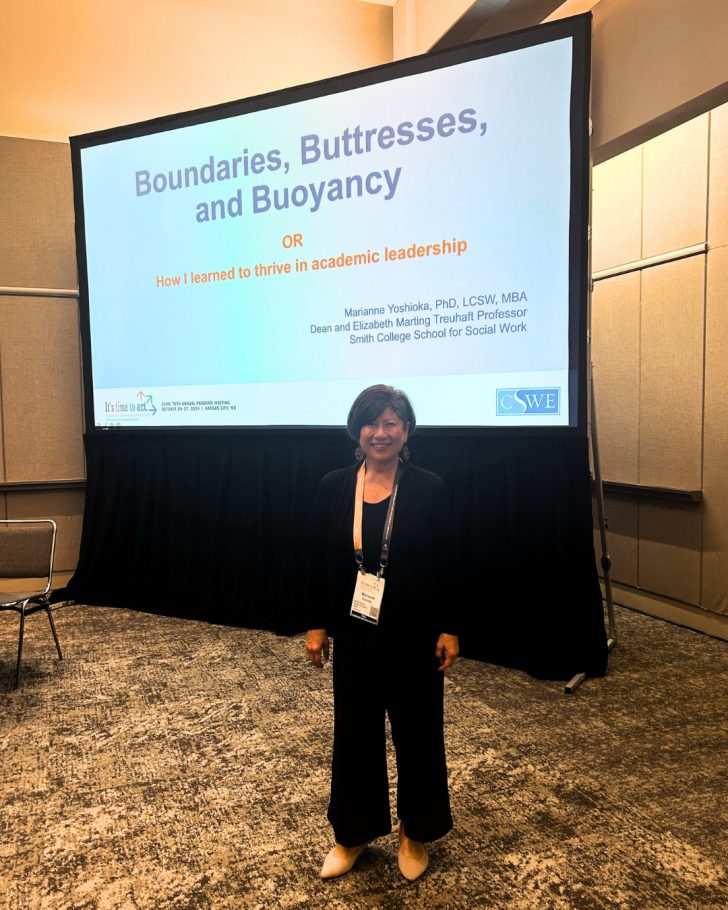
SCSW has contributed significantly to the development of clinical knowledge by publishing work by a range of social work practitioners and thinkers with a renewed focus on social justice. Both Professors Peggy O’Neill and Kenta Asakura, M.S.W. ’04, delivered presentations on their work with the journal to highly-engaged audiences.
O'Neill shared “‘Decolonizing’ Social Work Education: Opportunities and Lessons From a Journal Special Issue,” which focused on the opportunities and limitations of creating a special issue of the SCSW journal. Presenting with Lisa Werkmeister-Rozas, Ph.D. ’03, and Ovita F. Williams, they shared the theoretical framework that grounded their conception of “decolonizing” social work education and how they challenged common publication practices. With an intent to expand which voices are heard, they shared how they grounded their work in Indigenous ways of knowing to be able to understand structures of colonialism and to apply that to liberating social work education.
Asakura approached his presentation from his perspective as editor-in-chief of
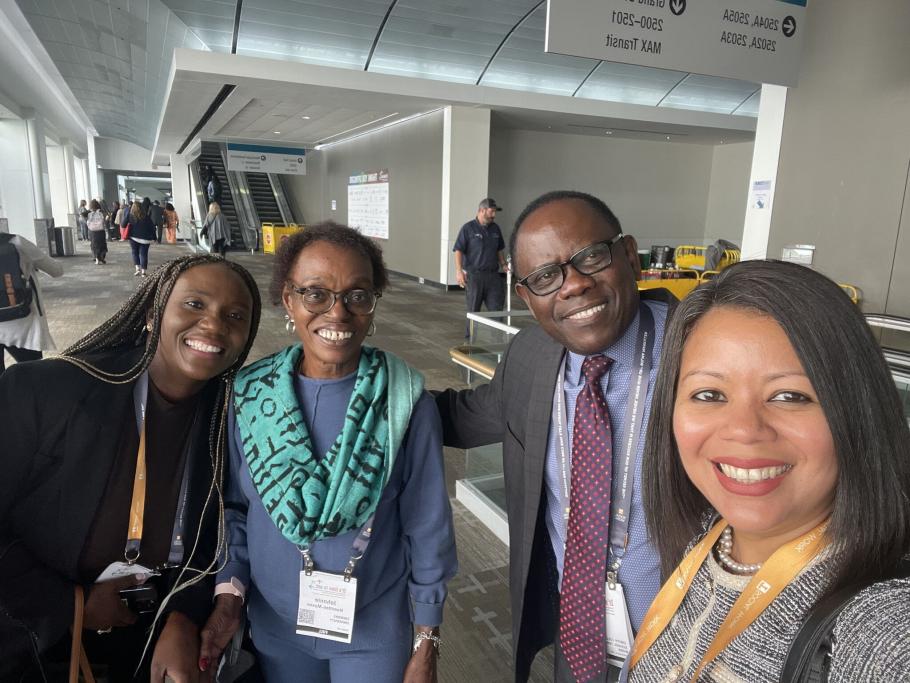
SCSW. Titled “Implications for Practice and Education: Writing and Reviewing for Peer-Reviewed Journals,” he presented along with Cristina Mogro-Wilson, editor-in-chief of Families in Society and Danielle E. Parrish, editor-in-chief of the Journal of Social Work Education, and SSW Ph.D. candidate Maria Ximena Maldonado-Morales, editorial assistant of SCSW.
Sharing emerging publication considerations and tips on increasing awareness and rigor when discussing anti-racist social work practice and education, Asakura discussed how to “write implications for promoting racial and social justice within a clinical process”, as well as advancing practice in marginalized communities.
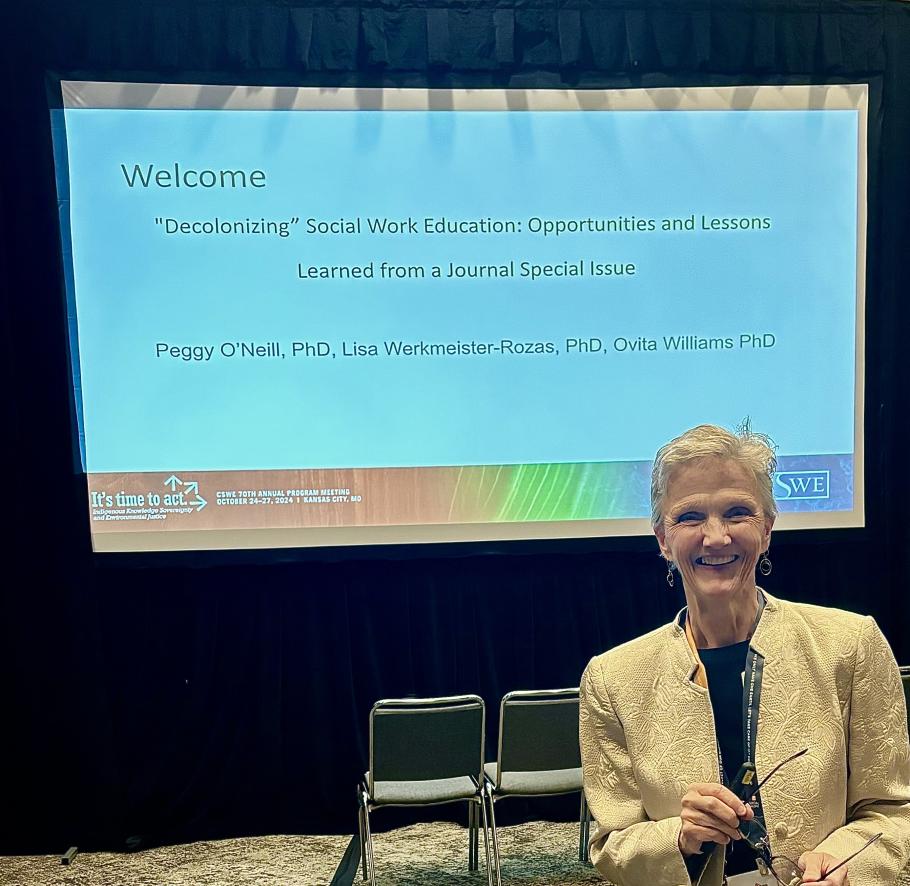
The impact of the U.S. Zero Tolerance policy on immigrants has become increasingly relevant following the recent election. Ph.D. student Cheryl Aguilar presented her paper, “Luchando Junt@s por Una Familia Unida: Community Healing After a Forced Immigration Family Separation” which focuses on the impact of the Zero Tolerance policy on immigrant parents, emphasizing the need to implement support groups to respond to trauma. “The paper integrates self psychology theory into groups, which when internalized symbolize strength and safety of la familia (the family) or la comunidad (the community).” Aguilar also received the Council on Racial, Ethnic, and Cultural Diversity (CRECD) award for her work at CSWE APM.
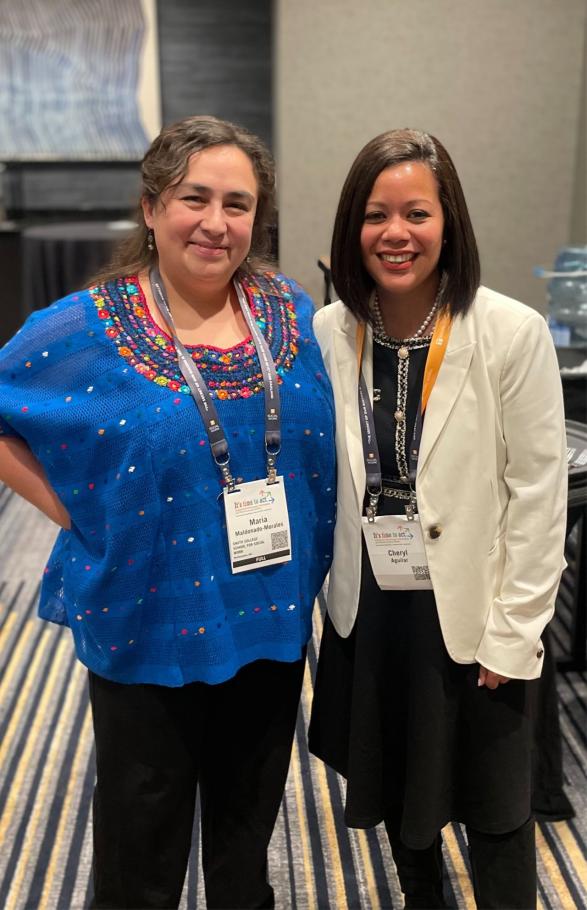
As the co-director of the Leadership Academy for Deans and Directors of Social Work, Dean Marianne Yoshioka spent the first part of the conference working with a cohort of new deans and directors on their leadership journey. She was invited to present at the CSWE Pre-Conference Leadership Development Institute, where she shared her talk on how to thrive in leadership roles, “Boundaries, Buttresses, and Buoyancy OR How I Learned to Thrive in Academic Leadership.”
Says Yoshioka, “I have learned so much on my leadership journey and I am committed to supporting other leaders, in particular women of color in leadership, to navigate the challenges and successes.”
Her interactive lecture examined the interplay of setting boundaries, establishing supportive structures (buttresses), and maintaining resilience (buoyancy) in the context of academic leadership.
The innovative work that each SSW community member shared at CSWE APM 2024 reflects the School’s multi-faceted approach to advancing social work education from a social justice perspective. The deep commitment to community engagement and support, expanding representation and inclusion, and fostering collective strength are just some of the ways scholarship coming out of SSW is shaping social work education.

